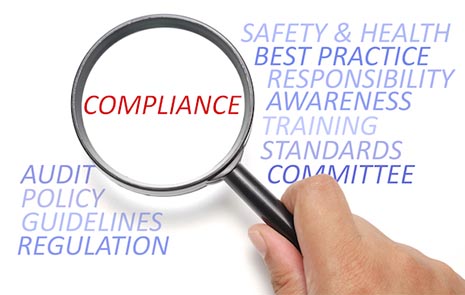
Happy New Year from the APPA Standards and Codes Council. As we start the new year the council feels it is important to update our members on changes to the standards and codes that govern your facilities.
As the year progresses the Council will be sending updates on the standards and codes you have identified as important to the APPA community.
Latest Update from ICC – ICC Pulse – Tuesday, February 2, 2021
ICC Pulse – Thursday, January 28, 2021
| The International Code Council (ICC) has a suite of codes that are nearly universally adopted in US states and municipalities. Even though many / most public universities are not typically subject to local jurisdictions, they are subject to their respective state adopted codes. One ICC code that is almost universal is the International Energy Conservation Code (IECC). This code is heavily influenced by ASHRAE Standard 90.1, and in most cases is fully concurrent. This past year was the IECC update code cycle. ICC is a very open member organization, with a large governmental membership that can vote on any code change / modification. There are two stages of voting – the first occurring at a public hearing process that occurs over many days. Following the public hearing, an online voting process is provided to all ICC members to affirm or overturn the public hearing phase. Most of the online voting is by municipal and governmental code officials, including campus code officials. This past year, two controversial proposals to the IECC was overturned by online voting, which prompted an appeal process in late 2020. The appeals committee recommended overturning these votes on the claim of unfair vote stacking via a promotion campaign following the public hearings. The committee upheld the votes, but accepted recommendations that were forward to an ICC board group (the Blue-Ribbon Committee) the IECC should transition from a governmental code process to an ANSI Standard. Here is the potential problem with this change. If the IECC (which is the widely adopted energy code for 48 states) becomes a committee standard, a group of 40-60 persons will manage the codes with no voting checks and balances from local and state code officials. Highly aggressive and expensive energy conservation measures (such as renewable energy requirement) may be mandated. Potential construction cost impacts would be significant, let alone the operation and cost impacts. This is very dangerous precedent if this moves forward. This could influence similar changes to other ICC codes. It provides for special interests to manipulate or control code development. ICC is moving very fast with this action. Following is the timeline that followed the Dec. 16 ICC Board vote: December 18, 2020 – ICC puts out a public notice the Blue-Ribbon Committee will receive public comments on transitioning the IECC from an open membership code to an ANSI standard managed by committee January 11, 2021 – Deadline for public comments January 21, 2021 – Public (online) hearing for comments. Public hearing was 2 hours, each commenter provided 2 minutes for comments. Click here to review the public hearing. Some significant organizations / entities strongly object this change and the process of this radical change. This includes American Institute of Architects (AIA), multiple AIA chapters, Am. Council for an Energy-Efficient Economy, National Association of State Energy Officials, several large city code officials, and many more. Most oppose the change as it will diminish the voice of ICC membership on code changes. ASHRAE is lukewarm in opposition, but the new structure is a direct threat to the future of 90.1. Changes to standards and codes can be found on the APPA website. |
 Create an Account
Create an Account
 Login/myAPPA
Login/myAPPA
 Bookstore
Bookstore
 Search
Search  Translate
Translate 

